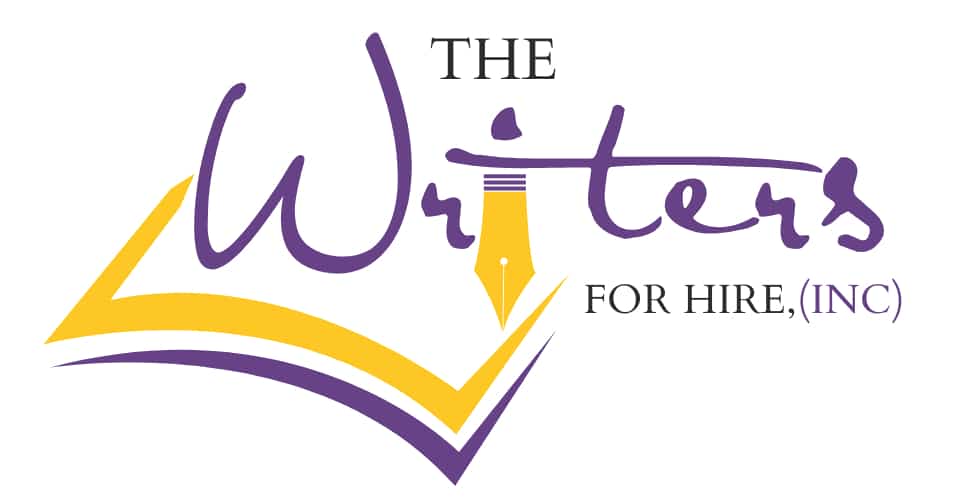Who Uses Ghostwriters?
January 18, 2022
Despite the notable names on their covers, it is widely understood and accepted that the memoirs and autobiographies of celebrities and public figures who are not known for their erudition are—in actuality and a majority of the time—the works of hired, uncredited writers.
But were you aware that ghostwriting comes in many forms other than just books? And did you know that ghostwriters aren’t only hired by celebrities and the like?
As a matter of fact, it is arguable that a majority of the ghostwriting out there in the world fits into alternative categories. And most ghostwriters are hired by people who are not household names.
Ghostwriting is far more ubiquitous than one might think. It is found in nearly every corner of daily life and the services of ghostwriters are implemented by a wide array of industries and individuals.
The output of ghostwriters is found almost everywhere. To gain an understanding of the variety of businesses and industries that utilize ghostwriting, it’s best to investigate its various manifestations in everyday life.
10 Surprising Examples of Ghostwriting in Everyday Life
The following examples of commonplace ghostwriting demonstrate its prevalence outside of traditional publishing.
Scripts, Screenplays, and Videos
During a memorable moment on his 2007 comedy album Werewolves and Lollipops, comedian Patton Oswalt reveals that one of his side-gigs—in addition to his career as a stand-up comic and voice actor—is ghostwriting screenplays for Hollywood.
In his act, Oswalt hilariously defines this form of ghostwriting—known as “punch-up” in the movie industry—as being asked to “think up funny, off-screen jokes that people that aren’t on screen can yell over the unfunny, uninteresting action to make it a comedy.”
Sometimes the ghostwriters that Hollywood brings on to punch up a script are pretty big names in entertainment themselves.
And sometimes the particular movies they are assigned to make for rather inexplicable pairings.
Here are some examples:

- M. Night Shyamalan, a writer and director known for creeping tension and twist endings—the likes of which can be seen in many of his own movies like The Sixth Sense and The Village—was a ghostwriter for the 1999 teen date movie She’s All That.
- Quentin Tarantino, a director whose own films rarely venture far from the deep-black end of the comedy spectrum, co-wrote the screenplay for the silly and lighthearted Saturday Night Live production of It’s Pat: The Movie. Tarantino did not accept credit for the work, lending his help as merely a gesture of friendship with Julia Sweeney, who starred in the film in the titular role.
- Charlie Kaufman—best known for complex and cerebral works like Being John Malkovich, Adaptation, Synecdoche New York, and Eternal Sunshine of the Spotless Mind—was brought on as a writing consultant for Kung-Fu Panda 2.
- Carrie Fisher, the actress most famous for her portrayal of Princess Leia in the Star Wars films, was a ghostwriter for 1992’s Lethal Weapon 3.
Many varieties of ghostwritten scripts are also acted out off the silver screen, such as those for television programs, commercials, and even the kind that are read aloud by cold-calling telemarketers and customer service reps.
The modern computing age has provided a new arena for ghostwriting as well.

Just about any up-to-date personal computer or laptop is capable of producing professional grade video graphics and sound. With internet video hosting as widespread and efficient as it has become in recent years, the climate for independently created content has never been more in favor of the little guy.
Individuals and businesses of any size alike now have the ability to create and distribute an infinite supply of promotional videos for advertising, instruction, or entertainment.
This entirely new genre of content has opened up a script quality void that ghostwriters are filling for many of the more successful producers.
How-To Manuals and Technical Documents
Almost all products on the market today—from devices to medicines to packaged food items—come with some form of instructions for use. These instructions may be required by law in some cases or they may only be in place to enhance the user experience.
Regardless of any requirements dictating their existence, instruction or operation manuals are extremely helpful to the end user. And ghostwriters are often brought in to write them.
Ghostwriters unaffiliated with the products at hand approach the writing of their user guides from an objective viewpoint.

They take directions from engineers and designers and translate them for the customer with more clarity than the manufacturer would most likely ever be able to produce internally.
Social Media
Ghostwriters are hired to manage the social media accounts of both public figures and brands.
While some celebrities have so many followers and so much engagement that handling even one of their social media accounts would constitute a full-time job, for the most part, social media ghostwriters simultaneously manage multiple accounts for multiple clients.

Social media ghostwriting is primarily the same for both personalities and brands. The ghostwriter receives updates from their client, repackages it appropriately, and then communicates it to the audience.
Social media ghostwriting differs from other forms of ghostwriting in that there is an element of immediacy to it, and much more audience engagement across platforms.
Followers are able to instantly engage with and respond to content. A ghostwriter for social media accounts must be able to react and respond to breaking events and trending topics and dialogue with their readers when appropriate.
Advertorials
Ghostwriters are often behind the conceptualization of advertorials—hybrids of advertisements and editorials—that can appear in various forms of media.
They are found in print in newspapers and magazines. They exist in audio-only format on the radio or attached to podcasts. They appear as video on television, streaming services, or online.
The key distinction that distinguishes advertorials from their component parts is how they are subtly disguised as newsworthy discussions that accomplish the goal of brand recognition and information dissemination.
While plenty of people are already averse to completely standard advertising, ads that purport to be something else entirely can come across as even more disingenuous. A talented ghostwriter, however, can produce advertorial content that maintains the reader or viewer’s interest while avoiding insincerity and underhandedness.
Sales Emails, Business Blogs, and Newsletters
A staple of modern business in the digital era is the standard sales email.
The goal behind every business email is not necessarily to get the reader to buy the product or service advertised within it.
The goal is instead, more simply, to get the reader to act—to click a link where more info is offered, to register for a list, to visit a website.

Skilled, advertising ghostwriters are capable of crafting copy that elicits these desired responses from the reader.
Company newsletters differ from sales emails in that they do not highlight a specific product or service but instead keep the reader up-to-date on the latest company developments and keep the company at the front of the reader’s mind.
Business blogs run parallel to newsletters in that their purpose is not to specifically sell customers on any particular item other than the idea of the company as a larger community that includes the reader within it.
The goal behind a company blog is to discuss greater lifestyle topics that would interest their customers—a kayak manufacturer publishing an article about the best North American rivers, for example.
By incorporating blogs and newsletters in their outreach, ghostwriters working on behalf of a company can capture the attention of their customers and further endear them to the brand.
Press Releases
At one time, press releases were one of the few ways an organization could make an announcement or get the word out regarding a particular event.
Despite the fact that there are now many additional avenues for public relations, press releases are still an effective means of sowing interest around a development that a business or individual would like to make the public aware of.

Press releases by nature are also picked up by different news organizations and publicized. Some of the publicity that comes from their issuance happens organically.
Also, press releases are effectively entered into a larger historical record. When published by newspapers, they are archived both in print and online indefinitely.
Some ghostwriters specialize in press releases and are adept at wording them for search engine optimization and to ensure the widest possible print circulation.
Medical Publishing
While doctors and medical research scientists are undoubtedly high-level intellects with advanced degrees, they aren’t necessarily great writers. In many cases the nature of their positions means that they also lack the time required to properly report on their findings.
A large portion of the output in the field of medical publishing is actually the work of ghostwriters.
The doctors and scientists behind the wealth of ongoing medical research rely on specialized ghostwriters who transcribe and translate their work for a more general audience upon completion.
The Music Industry
In the 1960’s and 70’s, Los Angeles based record companies like Capitol, RCA, and Columbia were the very heart of practically all popular music at the time.
To this day, many of the recordings that came out of that time and place remain cherished classics and the artists named on all those album covers are considered icons of that particular music scene.
However, few of those artists actually wrote any of their songs. And almost none of them had anything to do with the production of their albums apart from the vocal tracks.

The real work was left to professional studio musicians who could perfectly execute the performances—sometimes in a single take—saving the record companies a great deal of time and money.
The pool of musicians working in Los Angeles at the time were exceedingly adept and creative and came to be known amongst industry insiders as The Wrecking Crew.
Their very existence remained a closely guarded secret for decades and the listening public remained in the dark. That is, until the various identities that made up the crew were eventually revealed and celebrated for their rare talents.
While the state of the modern music business has been extremely turbulent since the turn of the century and the dawn of the streaming age, the presence of ghostwriters and other creatives—both credited and uncredited—seems to have remained unchanged.
From the public spats between alternative rockers Courtney Love and Billy Corgan to the various admissions, denials, and breathless clarifications regarding ghostwriting from some of the biggest music stars of today like Drake, Jay Z, Kanye West, Post Malone, and many more, it seems that ghostwriting has definitely established a solid footing among recording artists.
Online Bios and Resumes
Hiring ghostwriters isn’t an act reserved for large companies with deep pockets. Individuals regularly hire ghostwriters for boutique assignments in “one time use” capacities as well.

Often these ghostwriters are hired to elevate the client’s personal brand as opposed to a corporate one.
Resume writing services offer complete makeover packages for resumes, cover letters, and profiles on career sites like LinkedIn.
Ghostwriters of this variety promise results like keyword optimization that will get your resume through forbidding applicant tracking systems, formatting that stands out, and they even back up their claims with interview guarantees.
Speeches, Toasts, and Roasts
It is widely understood that, for the most part, presidents and other heads of state do not write their own speeches, but rely on professional speech writers to skillfully gather their sentiments in a phrasing that is complimentary to their natural speaking style.
Lower level politicians and corporate leaders take advantage of speech writers as well.
Even actors and musicians—in anticipation of awards ceremonies like the Oscars or the Grammys—will hire ghostwriters to help them word acceptance speeches should they be recognized at the event.
Corporate chiefs also commission ghostwriters to help them with their presentations at large, formal company meetings and product launches.
Even events like the roasts held by The New York Friars Club—legendary for the extreme nature of the free-wheeling insults lobbed back and forth by their participants—are in fact carefully planned exercises in ghostwriting.
The basic setup of a standard roast is that there is one individual honored at the event, but only after he or she has been made to listen to a litany of comedic yet brutal personal insults. The “roasters” who deliver these remarks gleefully attack each other as part of the ceremony as well. Finally, the honoree is granted time at the podium for a revenge speech.

Despite the vitriol exhibited on stage, behind the scenes, preparation for the event is actually a completely collaborative process where off-limit topics are agreed upon in advance and the featured comedians help to write the very insults that will be directed at themselves during the show.
Ghostwriters are even available for very small jobs like wedding toasts and other family events.
Considering how easy it is to preserve such events for posterity with the convenience of modern videography, it makes a lot of sense to thoughtfully plan out the remarks that you might make at them.
So, if you have an upcoming event at which you’ll be speaking or presenting written materials, perhaps some help from a ghostwriter is in order.































